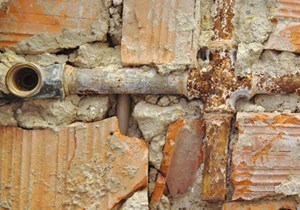Lehigh County seeks customer help to survey 12,400 Allentown lead service lines
PENNSYLVANIA (UI) — In order to perform a thorough examination of the city's lead-based water supply lines, the Lehigh County Authority (LCA) is contacting its Allentown consumers for their assistance, as reported by The Morning Call.
With the goal of completely replacing lead service lines throughout Allentown, the LCA is actively developing a complete overhaul strategy. A budget of $5.9 million has been allocated to facilitate the replacement of 150 lead lines within the city.
Despite the LCA's awareness of approximately 12,400 lead service lines dispersed across Allentown, there remains a significant gap in knowledge regarding the composition of about 9,000 water service lines, according to The Morning Call.
To address this information deficit, the LCA has initiated a customer survey, which is readily accessible on the LCA's official website. The survey provides customers with a platform to contribute valuable insights. Concurrently, the LCA is actively engaged in its own efforts to inventory these unidentified lines. This inventorying process is undertaken during visits to customers' residences for addressing service-related matters and water main upgrades.
The LCA's pursuit of comprehensive inventory management extends beyond lead pipes; the organization is also committed to obtaining meticulous records of all types of pipes. Furthermore, the LCA has outlined plans for the replacement of galvanized steel pipes, a type of piping that can similarly contribute to elevated levels of lead within drinking water.
The water coursing through service lines across Lehigh County demonstrates a relatively low level of acidity, thereby minimizing the likelihood of significant corrosion affecting lead pipes or lead solder. The Lehigh Valley's water composition is characterized by hardness, attributed to the substantial presence of dissolved calcium and magnesium. These two metallic elements leave behind light-toned residues within household appliances like teapots and coffee makers, while also contributing to deposits forming within pipes. This accumulation of deposits serves to further mitigate the potential for lead leaching or corrosion from lead pipes.
However, it remains imperative to acknowledge the potential for corrosion in lead pipes. As a precautionary measure, residents of Allentown who possess lead service or galvanized steel lines within their residences are advised to exercise caution and adopt certain protective measures.
The Lehigh County Authority (LCA) recommends the practice of running cold water through taps as a means of safeguarding against lead contamination in water designated for consumption or cooking purposes. This practice is particularly effective when implemented for three to five minutes after stagnant water has been present for over six hours. Ideally, this rinsing process should be carried out as a morning routine.
Another preventative step involves regular maintenance of aerators, which are detachable fixtures positioned at the tip of select faucets. For households with lead pipes, the LCA suggests monthly cleansing of aerators using a brush and white vinegar, coupled with annual replacement of aerators.
This story was originally published by The Morning Call.
Related News
From Archive

- Glenfarne Alaska LNG targets late-2026 construction start for 807-mile pipeline project
- U.S. water reuse boom to fuel $47 billion in infrastructure spending through 2035
- $2.3 billion approved to construct 236-mile Texas-to-Gulf gas pipeline
- Major water pipe break in Puerto Rico hits over 165,000 customers
- Potomac River Tunnel project enters construction phase beneath Washington, D.C.
- Pennsylvania American Water launches interactive map to identify, replace lead water service lines
- Trump's tariffs drive $33 million cost increase for Cincinnati sewer project
- Utah city launches historic $70 million tunnel project using box jacking under active rail line
- Tulsa residents warned after sewer lines damaged by boring work
- Fatal trench collapse halts sewer construction in Massachusetts; two workers hospitalized




Comments